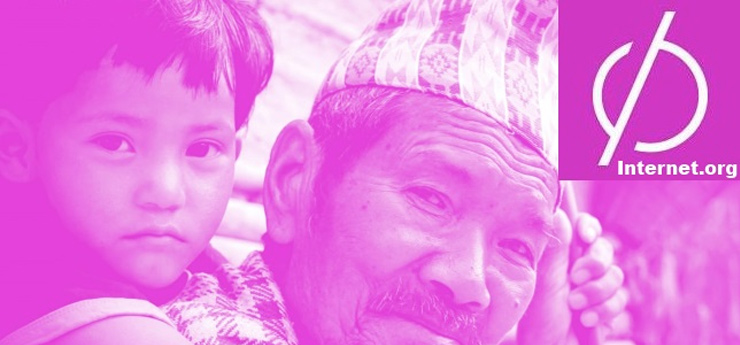Internet
Let’s begin by defining internet. It is a network of networks that consists of millions of private, public, academic, business, and government networks of local to global scope, linked by a broad array of electronic, wireless, and optical networking technologies. The Internet works because open standards allow every network to connect to every other network. This is what makes it possible for anyone to create content, offer services, and sell products without requiring permission from a central authority. Internet is built around the idea of openness. It allows people to connect and exchange information freely, if the information or service is not illegal. Much of this is because of the idea of net neutrality.
Net Neutrality
Net Neutrality is the Internet’s guiding principle: It preserves our right to communicate freely online. This is the definition of an open Internet. It means an Internet that enables and protects free speech. It means that Internet service providers should provide us with open networks and should not block or discriminate against any applications or content that ride over those networks. Just as your phone company shouldn’t decide who you can call and what you say on that call, your ISP shouldn’t be concerned with the content you view or post online.
Without Net Neutrality, cable and phone companies could carve the Internet into fast and slow lanes. Net Neutrality is crucial for small business owners, startups and entrepreneurs, who rely on the open Internet to launch their businesses, create a market, advertise their products and services, and distribute products to customers. They use the Internet to reach new customers and showcase their goods, applications and services.However, despite lack of formal rules, ISPs in India mostly adhere to the principal of net neutrality.
Internet.org
While the Internet helps make the economy more efficient due to increased interconnectivity, the gap between the top 1 percent and the rest of the world has still increased drastically. Developing countries insufficient access to the Internet has only furthered this inequality. In an effort to lessen the divide, Facebook (FB) founder and CEO Mark Zuckerberg launched Internet.org in 2013 to provide the entire world with affordable Internet access. While many users in developed countries consider Internet access a basic human right, global Internet access remains is non-existent in several developing nations.However, bringing Internet access to developing countries has several barriers to entry including lack of digital literacy, incentives, income and infrastructure necessary to support networks. In order to combat infrastructure constraints, the social network company’s Connectivity Lab is exploring aerial connectivity with drones and satellites.Internet.org is a global partnership between Facebook and several telecommunication companies, including Samsung, Ericsson and Qualcomm (QCOM). Internet.org has launched as a free-to-use mobile app in a number of developing countries, enabling users to access free basic apps such as Facebook, Bing and Google Search.
To use Internet.org in India you have to be a Reliance Communications customer in Mumbai, Maharashtra, Chennai, Gujarat, Tamil Nadu, Andhra Pradesh, or Kerala. To access free sites,Reliance users need to log onto Internet.org from their phones using either Opera Mini or UC Browser for Internet.org. For an android device you can access these sites via the Internet.org app(there’s no app for iOS or Windows Phone yet). If you try to access a site that isn’t a partner with Internet.org, you’re charged for the data used. While Facebook claims to be all for net neutrality, it’s the selection of services on display that make its claims questionable.According to Facebook,Internet.org doesn’t block or throttle any other services, or create fast lanes. We will never prevent people accessing other services, and we will not use fast lanes. We’re also open to including all mobile operators in Internet.org, and we’re not stopping anyone from joining. We want as many Internet providers to join so as many people as possible can be connected.A DoT panel on net neutrality is learnt to have opposed projects like Facebook’s Internet.org, which allow access to certain websites without mobile data charges, while suggesting that similar plans such as Airtel Zero be allowed with prior clearance from TRAI. According to the sources,the panel has stated however that “collaborations between telecom operators and content providers that enable such gate-keeping role to be played by any entity should be actively discouraged”.
Global confusion of Internet.org with Internet
We have seen how people that have been suppressed in countries and regions have used service like Facebook – to mobilize and share information, which wouldn’t have been possible previously. Despite this tangible benefits,most people still thinks Internet.org isn’t broadly a good thing. It skews competition. It’s not transparent. It doesn’t give people access to information outside of the services listed. And it isn’t the Internet. Most people using Internet.org use Internet for the very first time and don’t have any clue of how vast the Internet is. The users of Internet.org are confined to the selected websites and think that the 20-30 websites of Internet.org is what the Internet is made up of. If this continues over a period of time the user would make Internet.org his/her definition of Internet and would never try to explore outside the walled gardens of Internet.org. This in turn would restrict the meaning of Internet for the user to Internet.org. This is the problem which could end up in a very dangerous situation if a majority of the world’s population, billions of people, consolidate the idea that Internet.org is the Internet.


Comments are closed.